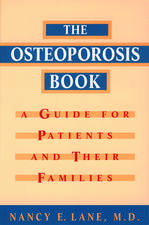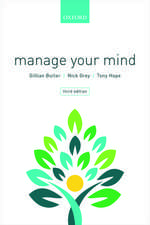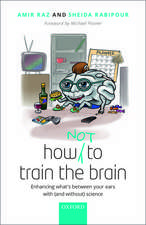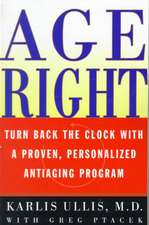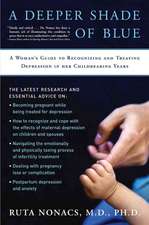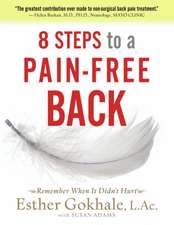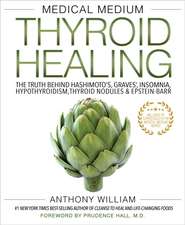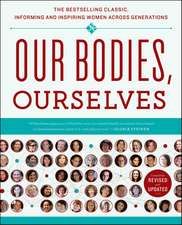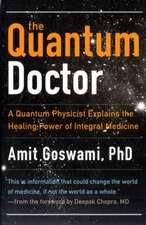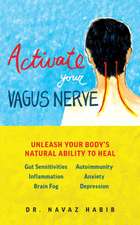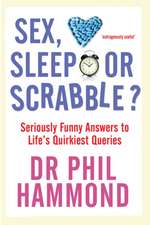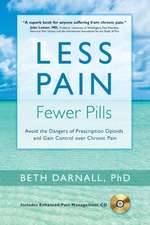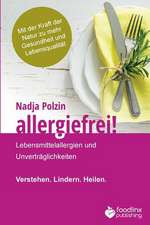Pick Your Poison: How Our Mad Dash to Chemical Utopia Is Making Lab Rats of Us All
Autor Monona Rossolen Limba Engleză Hardback – 28 feb 2011
Preț: 143.72 lei
Nou
Puncte Express: 216
Preț estimativ în valută:
27.50€ • 29.87$ • 23.10£
27.50€ • 29.87$ • 23.10£
Carte disponibilă
Livrare economică 01-15 aprilie
Preluare comenzi: 021 569.72.76
Specificații
ISBN-13: 9780470550915
ISBN-10: 0470550910
Pagini: 241
Dimensiuni: 164 x 241 x 24 mm
Greutate: 0.45 kg
Editura: Wiley (TP)
Locul publicării:Hoboken, United States
ISBN-10: 0470550910
Pagini: 241
Dimensiuni: 164 x 241 x 24 mm
Greutate: 0.45 kg
Editura: Wiley (TP)
Locul publicării:Hoboken, United States
Public țintă
Successful books on the way we′re poisoning ourselves come in two flavors: exposes and shopping guides. This is an expose, explaining all the ways chemical companies and the federal government have turned a blind eye to all the ways we may be harmed by the things we own. She does include information on how to make better choices as a consumer, but this book wouldn′t be helpful to bring with you to the Home Depot or the drug store.Descriere
"From her own art studio to Broadway to her own home and kitchen, Monona Rossol takes you on a journey into the toxic reality we inhabit, and which inhabits us. This is a tough topic to treat with a light touch, but Rossol pulls it offalong with tips for avoiding the most potent threats to your health."Mark Schapiroauthor of Exposed: The Toxic Chemistry of Everyday Products and What′s at Stake for American Power Everyone on the planet has already been exposed to low doses of toxic chemicals, from the womb to the tomb, says industrial chemist Monona Rossol. In Pick Your Poison, she explains that no one anywhere on earth is born without a bodily burden of DDT, PCBs, dioxins, and more. The world′s mothers provide the chemicals to their babies from what is already in their own bodies′ fat and bones. Even babies born on South Sea Islands or in the frozen wilds of Canada have toxic chemicals in their littlebodies. In fact, these populations usually have higher levels of toxins because the mothers eat fish and marine mammals that are now highly contaminated worldwide. Could this be related to the ever–escalating rates of chronic diseases and cancer, including skyrocketing rates among children? If so, how will we ever know? The majority of the hundred thousand chemicals we find in industrial and commercial products have never even had basic testing for chronic toxicity and carcinogeniceffects. Industries don′t want to spend the money for these tests, and our government doesn′t require them. Pick Your Poison provides an urgently needed road map for how you can work to change our laws, change our corporate culture, and change the way you shop to protect yourself and your loved ones.
Textul de pe ultima copertă
"From her own art studio to Broadway to her own home and kitchen, Monona Rossol takes you on a journey into the toxic reality we inhabit, and which inhabits us. This is a tough topic to treat with a light touch, but Rossol pulls it offalong with tips for avoiding the most potent threats to your health."Mark Schapiroauthor of Exposed: The Toxic Chemistry of Everyday Products and What′s at Stake for American Power Everyone on the planet has already been exposed to low doses of toxic chemicals, from the womb to the tomb, says industrial chemist Monona Rossol. In Pick Your Poison, she explains that no one anywhere on earth is born without a bodily burden of DDT, PCBs, dioxins, and more. The world′s mothers provide the chemicals to their babies from what is already in their own bodies′ fat and bones. Even babies born on South Sea Islands or in the frozen wilds of Canada have toxic chemicals in their littlebodies. In fact, these populations usually have higher levels of toxins because the mothers eat fish and marine mammals that are now highly contaminated worldwide. Could this be related to the ever–escalating rates of chronic diseases and cancer, including skyrocketing rates among children? If so, how will we ever know? The majority of the hundred thousand chemicals we find in industrial and commercial products have never even had basic testing for chronic toxicity and carcinogeniceffects. Industries don′t want to spend the money for these tests, and our government doesn′t require them. Pick Your Poison provides an urgently needed road map for how you can work to change our laws, change our corporate culture, and change the way you shop to protect yourself and your loved ones.
Cuprins
Preface. 1 Your Body is a Chemistry Experiment: Have We Given Ourselves Diabetes, Autism, and Cancer? 2 Dying for Your (Child’s) Art: Why Nontoxic Doesn’t Mean “Not Toxic”. 3 Calling a Product Green Doesn’t Make it Stop Being Poison: The Chemical Substitution Game. 4 All–Natural Doesn’t Mean Safe, Either: Mother Nature Is Out to Get You. 5 Why Not Just Use Soap?: You versus the Environment. 6 Of Wall Paint and Face Paint: How Labels Can Mislead You. 7 You Have the Right to Know: How the MSDS Can Help You Protect Yourself (When No One Else Will). 8 Your Air Filter May Be Polluting Your Air: Understanding Chemical Exposure. 9 Silver Socks Rocked by Toxic Shocker! Our Weak Worker and Consumer Protection Laws. 10 Chemicals Known to the state of California A Political Action Plan. 11 Don’t Drive Yourself Crazy: Thirteen Reasonable Ways to Change Today. Acknowledgments. Appendix A: Detergent Additives. Appendix B: Evaluating The Material safety Data Sheet. Appendix C: New York Disclosure Amendment. Notes. Index.
Notă biografică
MONONA ROSSOL , an industrial hygienist, divides her time between inspecting work sites, training workers, and delivering expert testimony in court cases involving chemical exposure. She is the President and founder of Arts, Crafts and Theater Safety, Inc., and a regular guest on the Leonard Lopate Show on WNYC. She has lectured and consulted in the United States, Canada, Australia, England, Mexico, and Portugal.


